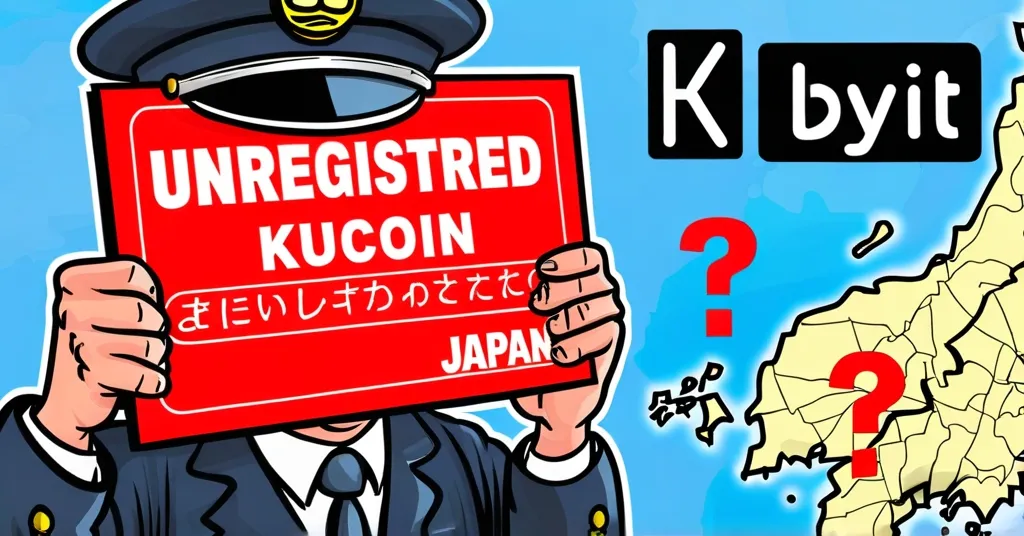Japan’s FSA Warns KuCoin, Bybit for Unregistered Crypto Operations

Japan’s FSA Flags KuCoin, Bybit, and Others for Unregistered Crypto Operations
What’s the cost of trading cryptocurrencies without government approval? Japan’s Financial Services Agency (FSA) has issued warnings to five cryptocurrency exchanges, including well-known platforms KuCoin and Bybit, for operating without proper registration. This decisive move highlights the importance of government rules and user protection in Japan’s well-regulated crypto market.
- KuCoin, Bybit, and three other exchanges operate unregistered in Japan.
- Exchanges must register with Japan’s FSA or local financial authorities.
- Unregistered exchanges pose risks to user funds and legal protection.
- Japan seeks to strengthen its position in the global crypto market.
- The UK is moving towards implementing its own crypto regulations by 2026.
Japan’s Regulatory Environment
The FSA’s warnings are part of a larger strategy to exert control over the crypto industry, ensuring trust in the market and safeguarding consumers. By operating without registration, these exchanges lack oversight, which can put users’ financial assets at risk. As the FSA noted, “The lack of registration on these sites raises significant issues about their oversight.” This acts as a reminder for crypto users to verify the compliance status of the platforms they choose, as echoed in the FSA’s advice: “Users are reminded by the warnings issued by the Japan FSA to check the compliance status of crypto platforms.”
Japan’s regulations require crypto exchanges to register with the FSA or municipal financial bureaus to ensure users have legal protection and oversight. This is a key part of Japan’s ambition to reaffirm its leadership role in the global cryptocurrency market.
Global Trends in Crypto Regulation
Japan’s actions are taking place amid a global shift towards stricter regulation of digital assets. The UK’s Financial Conduct Authority (FCA) is also working on comprehensive crypto regulations set to roll out by 2026. This reflects a broader global trend towards balancing innovation with the need for robust compliance standards.
Japan’s proactive stance aims to align itself with global regulatory standards while focusing on the safety and security of users. As countries worldwide develop their crypto regulation strategies, Japan is not only leading but also setting a high standard for market integrity and consumer protection in the digital asset industry.
Key Takeaways and Questions
- How does Japan’s approach to crypto regulation compare with other major economies?
- Users should look into the compliance status of their platforms to ensure safety.
- What impact will Japan’s regulatory actions have on the global cryptocurrency market?
As the world of cryptocurrencies continues to grow, Japan’s regulatory efforts highlight the need for a careful balance between innovation and oversight, fostering a safer environment for all market participants. Readers are encouraged to research the compliance status of their current or potential crypto platforms to protect their investments.



